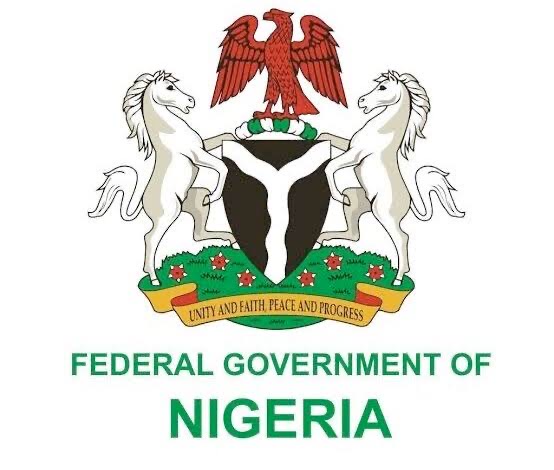The Federal Government of Nigeria has reaffirmed its commitment to adopting global best practices in the rebasing of the Consumer Price Index (CPI) and Gross Domestic Product (GDP) as well as conducting the Nigeria Living Standards Survey (NLSS). This initiative aims to enhance the accuracy and relevance of economic data, ensuring that Nigeria’s economy is better understood and more effectively managed.
Dr. Vitalis Obi, the Permanent Secretary of the Ministry of Budget and Economic Planning, made this statement during a meeting with economic experts in Abuja on Friday. Obi emphasized the importance of applying international standards to these key economic metrics, noting that doing so will allow for a more precise assessment of the economy, especially as it relates to emerging sectors and technologies.
According to Obi, the process of rebasing the GDP and CPI is critical to capturing the full scope of economic activities, including the growing influence of new technologies and digital industries. He explained that rebasing involves updating the base year and revising the weighting system used in these calculations, ensuring that they reflect the current structure of the Nigerian economy.
“Nigerians have seen household bills increase by 27.64% in just one year, largely driven by inflation,” Obi noted. This surge in costs highlight the importance of accurate data, which is crucial for shaping effective economic policies aimed at addressing inflation and maintaining price stability.

The rebasing of economic indicators like GDP and CPI, Obi explained, is not merely a technical exercise but one that has significant implications for policymakers. By utilizing updated and more representative data, the government can design policies that more accurately address the needs of the economy, fostering job creation and guiding investment decisions.
Obi further elaborated on the importance of the Nigeria Living Standards Survey (NLSS), which provides vital data on household consumption and welfare. The NLSS is a key tool for assessing poverty rates and overall living conditions in the country. He pointed out that updating the basket of goods and services used in the CPI calculations is essential for gaining a clearer understanding of inflation trends, which in turn helps maintain monetary stability.
“There have been significant structural changes in the Nigerian economy since the last rebasing exercise in 2014,” Obi stated. He highlighted the expansion of sectors such as technology, fintech, e-commerce, and digital services, all of which have dramatically reshaped the economic landscape. These developments underscore the need for updated data that reflects the current reality of Nigeria’s economy.
“You will recall that the last rebasing exercise in Nigeria was concluded in 2014. Before the exercise, the country’s GDP was approximately 270 billion dollars,” Obi explained.
“The rebasing saw the GDP surge to 510 billion dollars, positioning Nigeria as Africa’s largest economy and ranking 26th globally.”
“The number of sectors increased from 33 to 46, providing a more accurate economic picture,” he continued.
“These enabled policymakers to craft policies focused on job creation, poverty reduction, and informed investment decisions,” Obi added.
“Since then, Nigeria’s economy has undergone significant structural changes, particularly rapid growth in technology and digital sectors, including fintech, e-commerce, and digital services,” he concluded.
The expansion of these new sectors, according to Obi, necessitates the rebasing of GDP and CPI to ensure the data accurately reflects the economy’s current structure. Without these updates, Nigeria risks underestimating the true value of its economic output and missing key trends that are shaping its future.
Prince Adeyemi Adeniran, the Statistician-General of the Federation, also spoke about the importance of the Nigeria Living Standards Survey (NLSS). He explained that the NLSS is conducted every four to five years and plays a critical role in producing national poverty rates and other indicators of household welfare. The survey provides an essential tool for understanding the living conditions of Nigerians and shaping policies to improve them.
Referring to the previous survey, which was carried out in 2018/2019 and published in 2020, Adeniran revealed that it showed a poverty rate of 40.1 percent. This figure has been a driving factor behind the government’s efforts to design policies aimed at poverty reduction and economic growth.
Adeniran noted that the current workshop, which brought together experts, users, and stakeholders, was designed to provide a platform for discussing the methodology behind the survey. He emphasized the need for input and advice from a wide range of experts to ensure that the methods used in conducting the NLSS, as well as in rebasing the GDP and CPI, are both robust and aligned with international best practices.
“The ultimate objective,” Adeniran stated, “is to ensure that these processes are not only in line with global standards but are also tailored to the specific context of Nigeria’s economy.”
By aligning the rebasing of the GDP and CPI with global best practices and refining the methodology of the NLSS, the Federal Government aims to provide a clearer and more comprehensive picture of Nigeria’s economic landscape. This, in turn, will help policymakers make informed decisions that promote sustainable growth, reduce poverty, and address inflationary pressures.
































